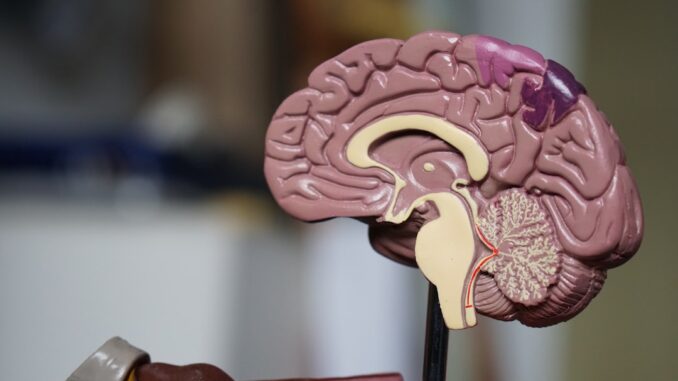
Summary
MindGlide, a new AI tool, analyzes MRI scans to track multiple sclerosis treatment progress. It identifies subtle brain changes, aiding faster treatment adjustments and potentially improving patient outcomes. This breakthrough allows for quicker and more efficient monitoring of MS.
** Main Story**
Multiple sclerosis, or MS, it’s a tough one. A chronic autoimmune disease that messes with the central nervous system. And what’s really critical? Accurately tracking how the disease is progressing and whether treatments are actually working. Now, there’s some seriously exciting news on this front. Researchers at University College London (UCL) have developed this groundbreaking AI tool called MindGlide and it might just change everything.
MindGlide: A Game Changer for MRI Analysis?
MindGlide? Think of it as an AI whiz that dives deep into MRI scans of the brain. It’s designed to pick up on subtle changes that, frankly, can be easily missed by the human eye or even by older methods. The secret sauce? Deep learning algorithms. These algorithms allow MindGlide to analyze brain MRI scans, pinpointing key indicators of MS-related damage. We’re talking about things like the size of lesions, brain shrinkage, and identifying those pesky plaques – all super important for understanding how the disease is behaving.
Now, here’s where it gets really impressive. Traditional methods? They rely on expert neuroradiologists who have to manually interpret these complex scans. Talk about time-consuming! MindGlide, though, zips through the same process in just 5-10 seconds per image. It’s a dramatic increase in efficiency that could allow for more frequent monitoring and, crucially, quicker adjustments to treatment when they’re needed. I mean, imagine being able to fine-tune a patient’s treatment plan based on almost real-time data. That’s the kind of impact we’re talking about.
What the Study Shows
They put MindGlide through its paces, running it on over 14,000 images from more than 1,000 MS patients. The findings, published in Nature Communications, were genuinely impressive. MindGlide didn’t just perform well; it actually outperformed two existing AI tools: SAMSEG and WMH-SynthSeg. It proved to be a whopping 60% more effective than SAMSEG and 20% better than WMH-SynthSeg at locating plaques – those lesions that are a key marker of disease activity in MS. Why was MindGlide so successful? Well, it’s because it can spot lesions on the outer layers of the brain. Crucially it can also detect changes in the deeper brain areas. That means a more complete picture of the disease’s impact.
But it doesn’t stop there. The tool works reliably across different scan types, even routine MRI scans that aren’t specifically designed for MS analysis. It’s versatility like that, that will really make a difference in real-world healthcare settings.
The Future: AI Leading the Charge?
Dr. Philipp Goebl from UCL’s Queen Square Institute of Neurology hit the nail on the head when he said he hopes to “better understand a patient’s condition through AI in the clinic.”
The development of MindGlide it’s not just a small step; it’s a significant leap forward in MS research and treatment. Faster analysis and quicker detection of those subtle brain changes? That could translate to more timely and effective interventions, which is what we’re all aiming for. And that’s not all, I mean by enabling healthcare professionals to tailor treatments to each patient’s individual response, MindGlide has the potential to improve patient outcomes and quality of life. While its currently focused on brain scans, the plan is to expand its capabilities to include spinal cord imaging. This innovative AI tool is showing us how MS care could be transformed.
Speaking of personal stories, I remember a friend of mine struggling to get a clear diagnosis for years. If something like MindGlide had been available back then, it could have saved her a lot of uncertainty and anxiety.
Beyond MS: AI’s Expanding Role
However, its not just for MS. The success of MindGlide shines a spotlight on the broader potential of AI in medicine and healthcare. If you think about it, AI can automate complex tasks, boost diagnostic accuracy, and help create personalized treatment plans. That’s a recipe for revolutionizing healthcare delivery. And we’re already seeing similar AI-powered tools popping up for other conditions. We are moving towards a future where healthcare is more efficient, precise, and, most importantly, patient-centered. Now isn’t that something to look forward to?


Given MindGlide’s success in analyzing brain scans, how might similar AI tools be developed to assess the efficacy of treatments for other neurological conditions with subtle, difficult-to-detect changes, such as early-stage Alzheimer’s or Parkinson’s disease?
That’s a great question! The potential for AI to assess treatment efficacy in early-stage Alzheimer’s and Parkinson’s is huge. Adapting MindGlide’s deep learning algorithms to identify specific biomarkers for these diseases, perhaps through longitudinal studies, could be a game-changer for early intervention. It would require extensive datasets and collaboration across research institutions!
Editor: MedTechNews.Uk
Thank you to our Sponsor Esdebe